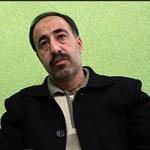WYSIWYG a Fantasy

In their post-colonial history, Egyptians have had their share of political upheavals: they have battled with Israel, endured poverty and unemployment, and lived under the shadow of military rule. According to the latest surveys, they are among the most fervent anti-American and anti-Israeli citizens of the region, even if the bitter lessons from history stop them from engaging in another war with Israel.
Whether ordinary citizens or politicians, Egyptians have an accurate perception of contemporary Iran and its 1979 Islamic Revolution. Indeed, they were eager supporters of Iran and its revolutionary zeal. Thirty-two years after the event, the good and bad of the Revolution are laid bare for them to learn from. A survey of books on Iranian affairs authored in Egypt during recent years proves that Egyptians are seeking a different path, one whose main focus is the eradication of autocracy and corruption.
In Iran, what is generally reported as news by various agencies is actually the projection of dreams by the funding political camp. It is the worst type of journalism, which erodes the public trust. Two weeks ago, Iranian state-run TV victoriously ran a piece on Tunisians publicly holding collective prayers after fifty years. Anyone with a tad of knowledge about Arab Muslim countries knows how far from reality such reports are. Collective Friday prayers is an imperative religious practice that was never abandoned by Sunni Muslims. A simple clerk at the Iranian Embassy in Tunis can testify to this fact.
But that’s not all. Just a couple of days after the eruption of anger in Egypt, some Iranian websites quoted the towering Egyptian journalist Mohamed Hassanein Heikal –dubbed by them a member of the ruling National Democratic Party and Mubarak’s close friend- suggesting the use of metal truncheons instead of wooden and plastic ones to suppress the protestors. Quite the opposite, in fact, for Heikal, a Nasserist intellectual, has been a critic of Mubarak for long and believes that the current movement is the largest popular uprising in Egypt’s contemporary history.
The best function for these kinds of news items is self-deception. No one will buy them and they will definitely not help us paint the demonstrations in Egypt and Tunisia ‘Islamic’, and accuse the nationalist currents of being pawns of the establishment or Western countries.
This is the reality of Egypt: Husni Mubarak knows Egyptian society well, has launched a clandestine war of attrition aimed at corroding the Egyptian protestors’ stamina in the long run, and is waiting for the apt moment to turn the tide in his own favor. He has appointed Omar Soleiman as negotiator to sow a rift and suspicion among the opposition. By offering sweeteners to prominent opposition figures and ordinary people, the Egyptian ruler is attempting to serve his term to the end. The army is not the supportive of the national uprising as some in the media try to portray; otherwise, Mubarak would not have lasted in power for another hour. Food prices have spiraled upward with the curfew enforced by the army.
Western countries are well aware of the game Mubarak is playing. At the moment, what bears import for them is finding the right man to rule the country and serve their long-term interests after Mubarak. They know the equation: a failure of the Egyptian uprising casts a grave silence over the Middle East and its success has a consequential aftermath. Thus, the best move is to manipulatively channel the anti-Mubarak fervor in a fashion that produces the least adverse effect. Should the recent contradictory, equivocal remarks by senior American officials raise eyebrows? For them, national interests, and not democracy or any other flowery cause, stand atop the diplomatic agenda.
* Hojjat-ol-Lah Joudaki is former cultural attaché in Iran’s Interests Section in Cairo.

